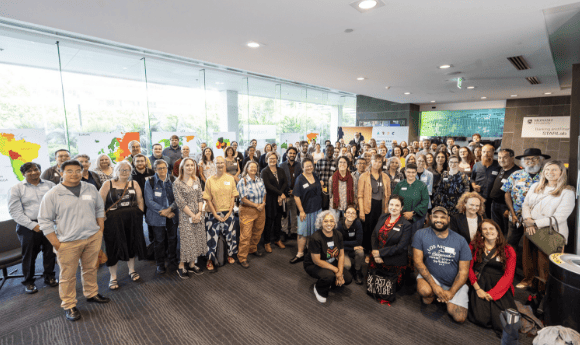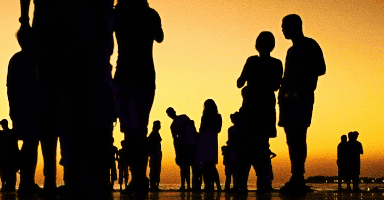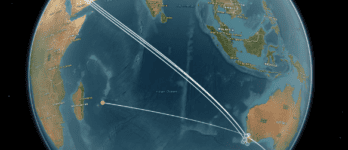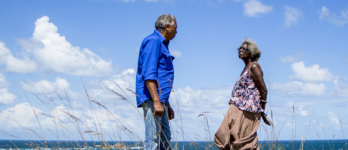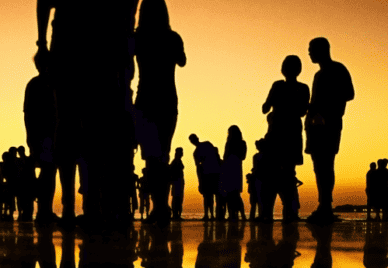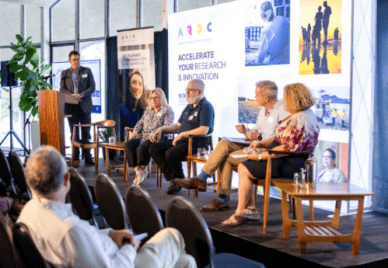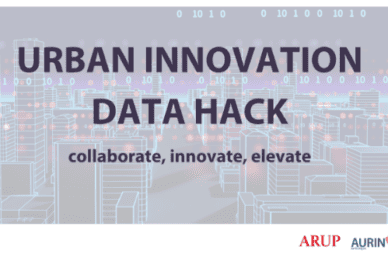
Over 100 early-career researchers and managers of Indigenous data from across Australia gathered in Melbourne on Wurundjeri Country to explore Indigenous data governance, learn new tools for research and make connections with fellow researchers at the ARDC’s second annual HASS and Indigenous Research Data Commons Computational Skills Summer School.
The Summer School aimed to empower participants with practical knowledge, build digital skills, and help inspire new research outcomes within these research communities.
Jenny Fewster, Director, HASS and Indigenous Research Data Commons, ARDC, said, “We thank all the participants for joining us in person, and for our incredible partners who presented on a variety of topics to upskill researchers in using data in their research. We had participants from diverse fields of linguistics, history, public health and more. Thank you for your generous participation and contribution to growing the computational HASS and Indigenous research data community”
An Overview of the Summer School Program
We began the Summer School by being welcomed to Wurundjeri Country by Thane Gannaway-Garvey.
The first day saw participants brought together in a shared space, expertly facilitated by Grant Sarra (Gooreng Gooreng), and through an icebreaker conducted by the skills specialists at the ARDC. Levi-Craig Murray (Wakka Wakka and Kubi Kubi) from the Indigenous Data Network (IDN) at the University of Melbourne shared an introduction to Indigenous data, and a personal connection to data through objects.
The afternoon participants split into streams: one group was introduced to R by Germán González from AURIN and Dr Matthew Smith from the Institute of Social Sciences Research at the University of Queensland. Non-coders were surprised at how much they could achieve in one session when it came to their first step into coding in R. Presenters said R is a great coding language to start out in, and is particularly useful for statistical analysis.
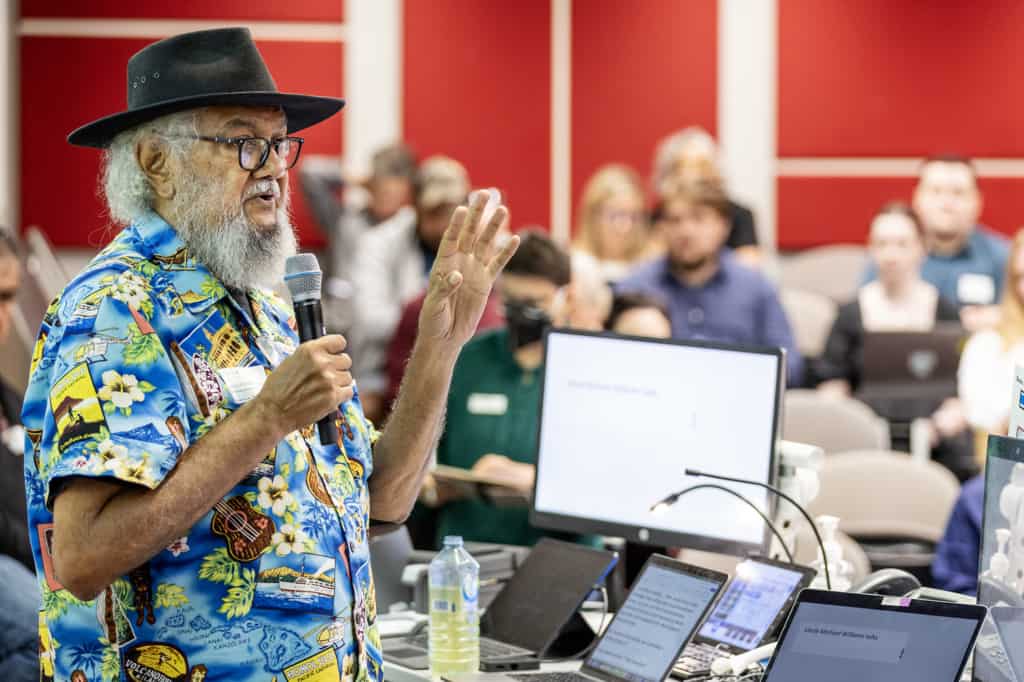
At the start of the second day we were honoured to have Uncle Michael Williams, Gooreng Gooreng man and former head of the Aboriginal and Torres Strait Islander Studies unit at the University of Queensland, share his wisdom and stories with the participants.
Dr Tom Honeyman provided an overview of the ARDC’s HASS and Indigenous Research Data Commons – watch the recording, view the slides.
An introduction to various computational tools that can be used to explore research questions in HASS research followed.
The first block shared case studies from the ARDC Community Data Lab:
- Annotating images with the Image Annotation Workbench, presented by Dr Ian McCrabb, Systemik – watch the recording, view the slides
- An Introduction to Geospatial Information Systems (GIS) analysis, presented by Kaine Usher, TLCMap, University of Newcastle – watch the recording, view the slides
- Unlocking the Mysteries of Trove with the Trove Data Guide, presented by Dr Tim Sherratt, University of Canberra – view the slides
Two more case studies followed.
- An introduction to a geosocial data integration tool, presented by Germán González, AURIN – watch the recording, view the slides
- Enriching data in the curation of the Centre for Australian Languages and Linguistics Collection at the Batchelor Institute, presented by Karen Manton (Batchelor Institute), Ben Foley (Language Data Commons of Australia (LDaCA)), Levi Murray (IDN)
Presentations on Indigenous Data Governance were not recorded as they contained sensitive information.
We ran multiple workshops on day 3:
- Using a Jupyter Notebook to explore the Daisy Bates collection of Indigenous languages with LDaCA and IDN
- Using R
- Introducing the tools in the ARDC Community Data Lab, which included
- Digging deeper into Trove with computational tools in the Trove Data Guide and the GLAM Workbench with Tim Sherratt
- Using the Image Annotation Workbench (early release), which is a tool to annotate images – including manuscripts, cultural artefacts, and more. It uses the International Image Interoperability Framework (IIIF)
- An introduction to understanding GIS data in Jupyter Notebooks, an a quick overview of TLCMap
As at all our events, the ARDC and our partners were dedicated to providing a welcoming, supportive and respectful environment for all Summer School participants, regardless of background or identity, as detailed in our code of conduct.
Summer School Participant Experiences
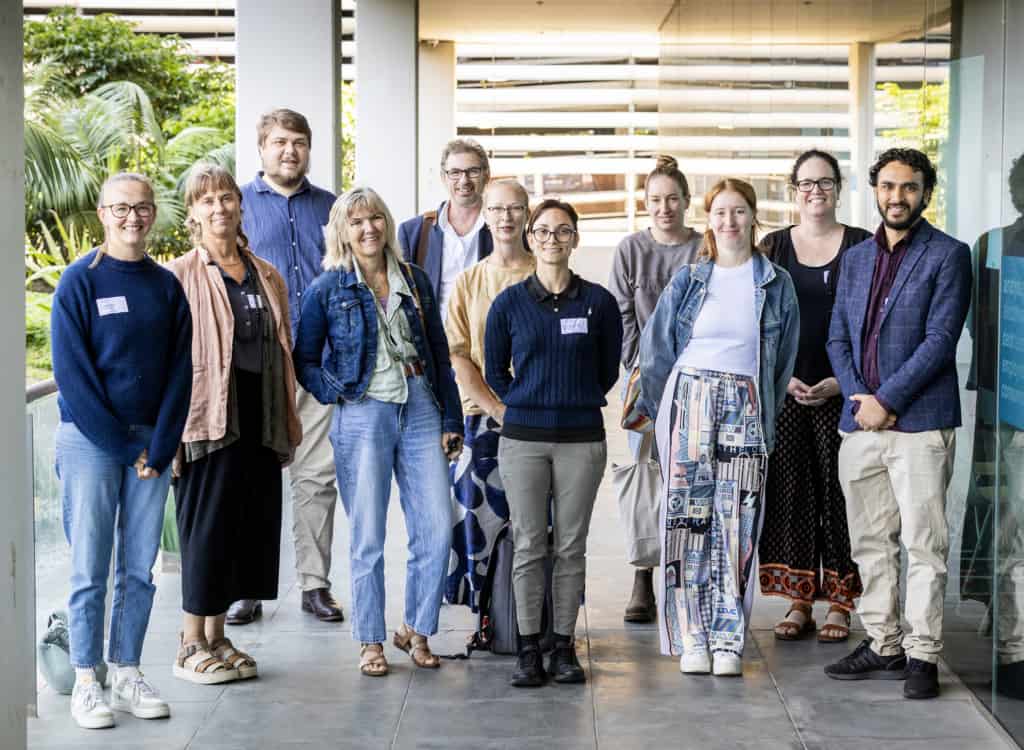
The ARDC sponsored 13 travel bursaries to support participant’s attendance at the Summer School, allowing them to attend from places such as Perth, Cairns, Alice Springs and Bathurst. Travel bursary recipients share what they found most valuable at the Summer School below.
Charlotte Ward (Monash University) is a PhD candidate and a team member of Global Encounters: 1000 Years of Australian History. Her research is looking at Dutch encounters on Australia’s west coast, specifically Dirk Hartog’s (1616) and Willem de Vlamingh’s (1696) voyages and their pewter plates that they left on Wirruwana (Dirk Hartog Island).
“I found the first day’s discussion around Indigenous data governance particularly valuable – more so from my previous role as a Collection Access Officer at AIATSIS, but also for my PhD research as I have located the 43 Aboriginal artefacts in France and there’s a question of “What next?”. Additionally, I found the Annotating Images workshop useful as a means of cataloguing the information I have found about the 43 Aboriginal artefacts and the two Dutch plates.”
Georgina Skelly (James Cook University) researches archaeological landscapes using GIS interfaces and R.
“’Using R with Social Sciences data’ broadened my understanding of how to manipulate geospatial data in R. I learned some new technical tools that I can directly apply to my own research.
“The Data 101 session was great. There were so many people from such different backgrounds and research areas in the audience, the discussion facilitated by Levi made me see things from new perspectives that I sometimes overlook.”
Sarah Fulford works at the Minderoo Foundation in Perth in the Indigenous Employment team working on Index 2.0 through collaborative qualitative and quantitative research focused on employment parity for Australia’s First Nations peoples. She is also an Australian historian and teaches units at Curtin University in Health Sciences which focus on the continuing impact of colonisation for marginalised groups in a global and Australian context.
“The sessions which focused on Indigenous Data Sovereignty most aligned to what I had hoped to gain from the course with a focus on Indigenous ways of knowing, being and doing as they pertain to issues of copyright and governance.
“It was valuable being able to spend three days with like-minded people who were curious about research in this space.”
Lissara Bergamaschi (Griffith University) is an honours student of Linguistics and my research involves Indigenous Australian Languages, more specifically analysis of archival materials of languages located in the Southern East Queensland region.
“Working with R was really great. Getting familiar with its functionalities and interface will help me with my future research. That was a ‘hands on’ session where I learnt a lot by practising with data using a state of the art technology.”
Ryan Stoker is a repository manager, looking after the Aboriginal and Torres Strait Islander Data Archive (ATSIDA) at UTS.
“As my work is around assisting Aboriginal and Torres Strait Islander communities and researchers with archiving and repatriating data, I was very interested in travelling down to meet other professionals in the field, contribute to shared opportunities and challenges in this space and learn new skills.
“I really enjoyed the discussions on the first day of the Summer School around Indigenous Data Sovereignty, Access, and Licensing. There were some really great discussions around the issues facing communities and researchers when storing research data on the cloud and how to ensure that data is shared according to community expectations. I equally enjoyed the case studies shared, putting what we discussed into practice – Levi also presented a very thought provoking exercise around describing some of the items in his collection.”
Audrey Henry is a PhD candidate at the University of Adelaide. Her research is on working with First Nations farming communities to understand how new genetic research opportunities for Australian crop species might be harnessed from native food species while prioritising the knowledge sovereignty and legal and moral rights of First Nations Traditional Owners.
“I most enjoyed the interactive session which Levi ran using the items he shared from his collection. For me it really highlighted how subjective processes of categorisation are. It was also a great teaching experience of how limiting these digitisation structures can be when they are not fit for purpose, and why it is so essential that we give power and priority to the voices of the communities that information comes from.
“Overall the most valuable thing for me was the openness of discourse around issues which arose during the workshops and presentations. I feel it is very important for those of us working in this space to feel able to receive critique of our practices without feeling it as personal. I also really valued the opportunity to just connect with such a broad range of researchers who are all working to prioritise similar value frameworks and ethics through their methods and research.”
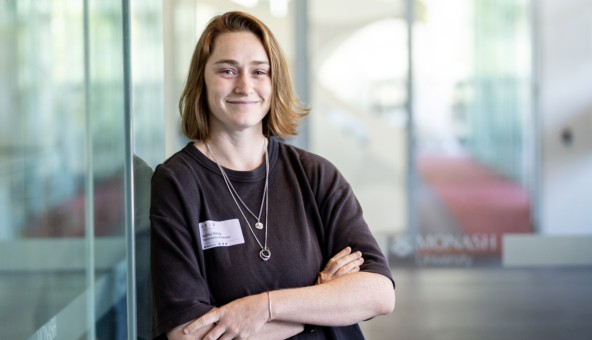
Lucy Hughes (James Cook University) is a PhD Candidate in the field of archaeology and my project is collaborative research with the Kaiadilt, Lardil, Yangkaal and Gangalidda people from the Wellesley island region in the Gulf of Carpentaria on fish traps on Country. Her project includes the mapping of stone walled intertidal fish traps and the development of a geospatial database of fish traps for Traditional Owners and the Wellesley Island Rangers.
“I found the discussion sessions and particularly the sessions run by Levi to be the most valuable in that it gave me greater insight and made me consider things more deeply in relation to sensitive Indigenous cultural data.
“I found the crossover of disciplines and research foci very valuable and the exposure to the varying experiences of everybody involved in the Summer School.”
Madeline Clews (University of Western Australia) is in her final year of a PhD, undertaking a historical sociolinguistic study of Australian English, with a particular focus on colonial Western Australia. She found 3 sessions the most valuable:
- “The session with the practical exercise of using the Dublin Core schema to describe/classify the ‘analogue’ data items.
- I found the mapping presentations (surprisingly) useful as they delivered a sudden understanding of the previously mystifying vocab used in geospatial data management.
- The Trove workshop was especially useful to me as I am currently wrangling data from Trove for a paper I am writing.”
Dr Nick Ruddell is a First Nations researcher within the School of Indigenous Australian Studies at Charles Sturt University (CSU). His research specialises in the production of inter-generational educational assets to meet community and industry needs through an original and innovative engagement framework – Mutual Cultural Responsivity.
“Uncle Michael’s talk was inspiring. Updates on software, new developments in GIS, RO Crate, and Tim Sherrat’s GLAM workbench were valuable. It was a chance to meet academics and significant knowledge holders in my field of research. I also appreciated Grant Sarra’s stewardship of the event.”
Jodie Kell is the Laboratory manager at PARADISEC, supervising digitisation workflows and data management, as well as project managing on research such as LDaCA, Warlpiri Digital Learning Space and co-producing the Toksave: Culture Talks podcast. Jodie’s PhD research is an autoethnographic account of contemporary women musicians in Maningrida, West Arnhem Land, specifically the Ripple Effect Band.
“The IDN and LDaCA sessions with Simon Musgrave, Levi Murray and Ben Foley along with MC Grant Sarra on the first day were most valuable with regards to both Data Sustainability and Data Access. Such in depth discussion was deepened by understanding of key data and archiving concepts, as well as providing practical advice.
“Speaking and connecting with a range of people who are interested in research data and investigating ways to share our knowledge and skills was also valuable. I also learnt where to find more information and online resources, particularly about the tools and resources that ARDC offers.”
Dr Manoj Bhatta is an early career researcher working as a Postdoc at the Menzies School of Health Research. He has a multidisciplinary background, conducting socio-ecological research using mixed-method research approaches and, most recently, climate change and environmental health research.
“First of all, I would like to take this opportunity to congratulate the entire ARDC team for successfully organising the second HASS and Indigenous Research Data Commons Computational Summer School and also for providing the opportunity to a researcher like me based in remote Australia to participate in such a huge event.
“It was an excellent opportunity to learn to augment social survey data with geospatial information using R, which will create a chance to use the learning significantly in my current research on climate change and Indigenous health in Central Australia. This platform has allowed me to understand the methodological and technical aspects of combining social and geospatial science.
“This event provided a valuable opportunity to connect with researchers from diverse backgrounds. The interactive sessions at the end of each day were the main point of attraction, where participants could share their understanding of this learning process.”
The ARDC hopes to run a similar computational skills school for HASS and Indigenous researchers in 2025.
To keep up to date with the HASS and Indigenous RDC, register your interest.
Here are some more photos from the Summer School (Images: David Hannah / ARDC):
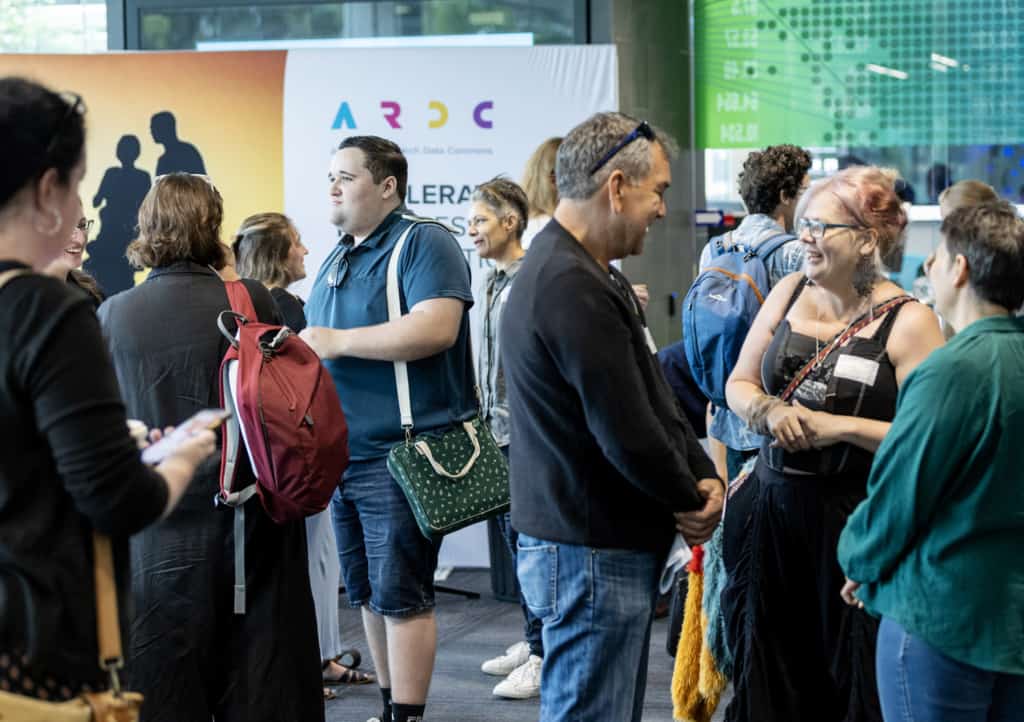
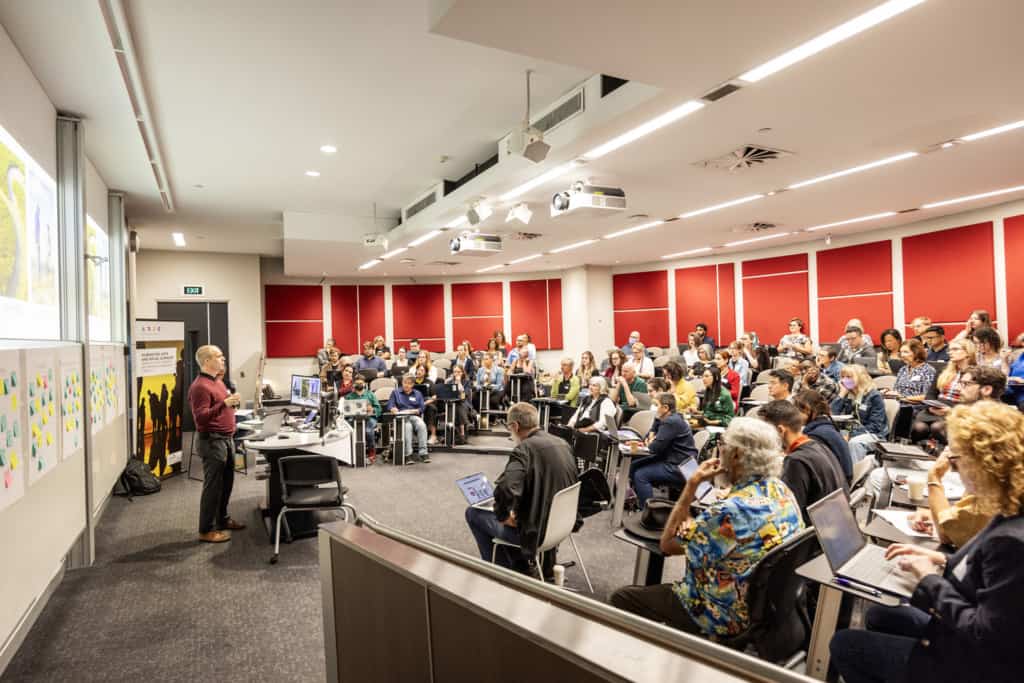
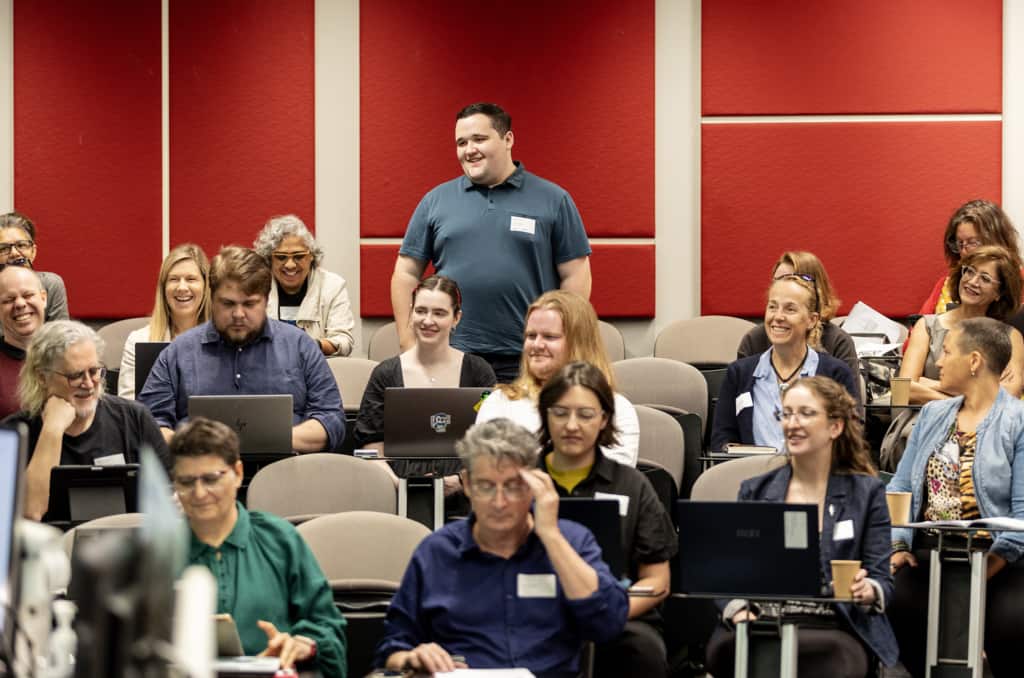
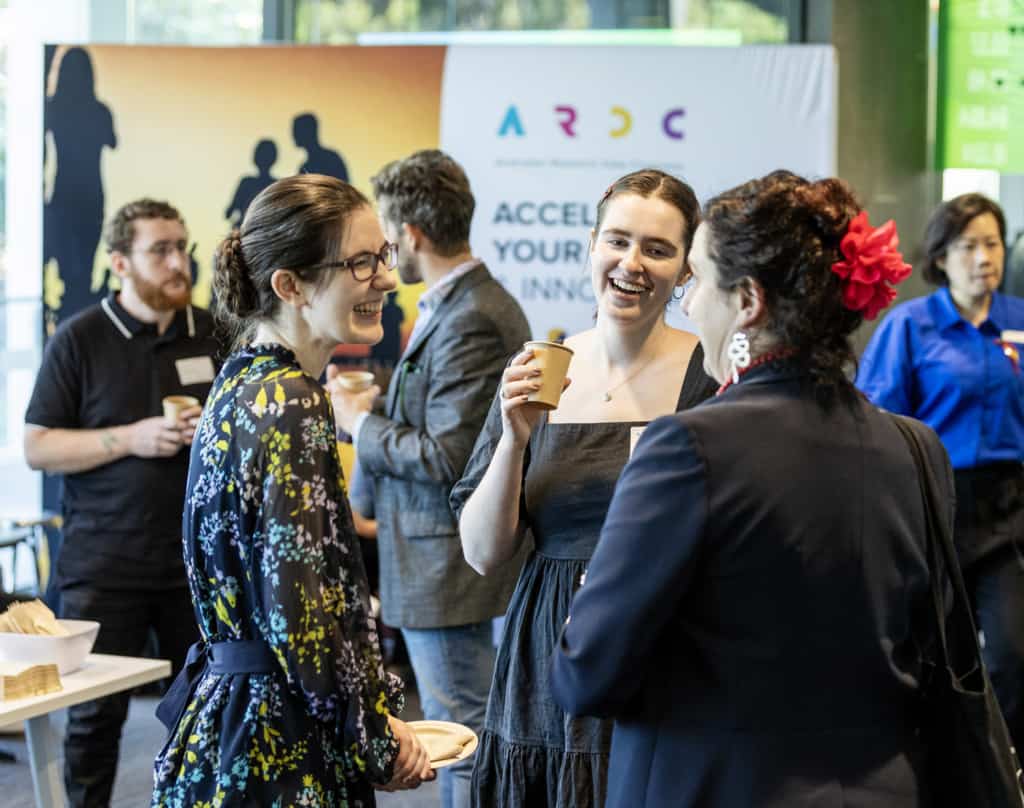
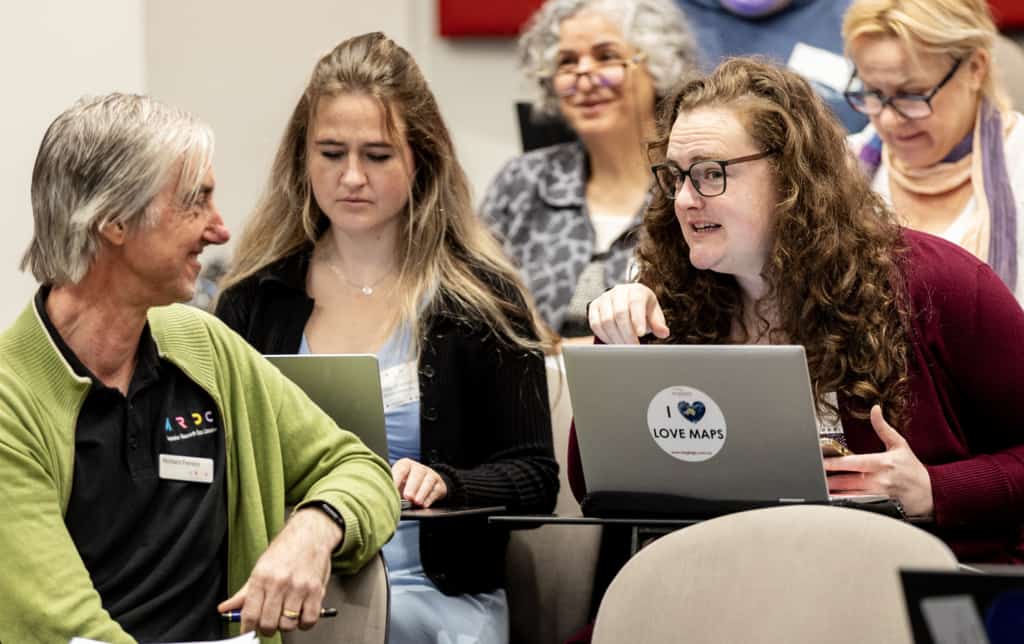
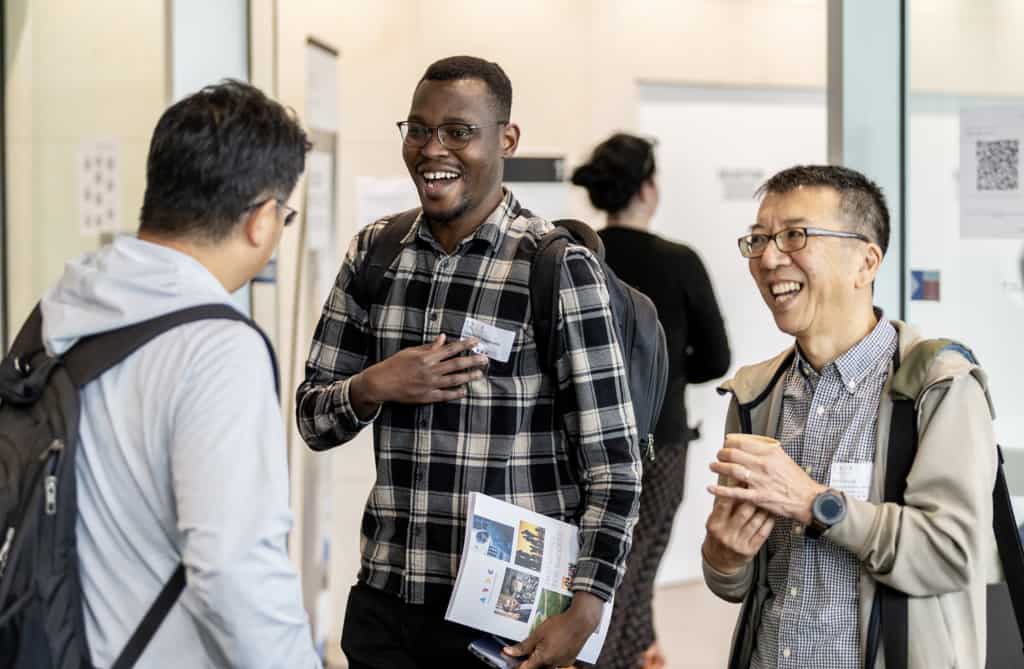
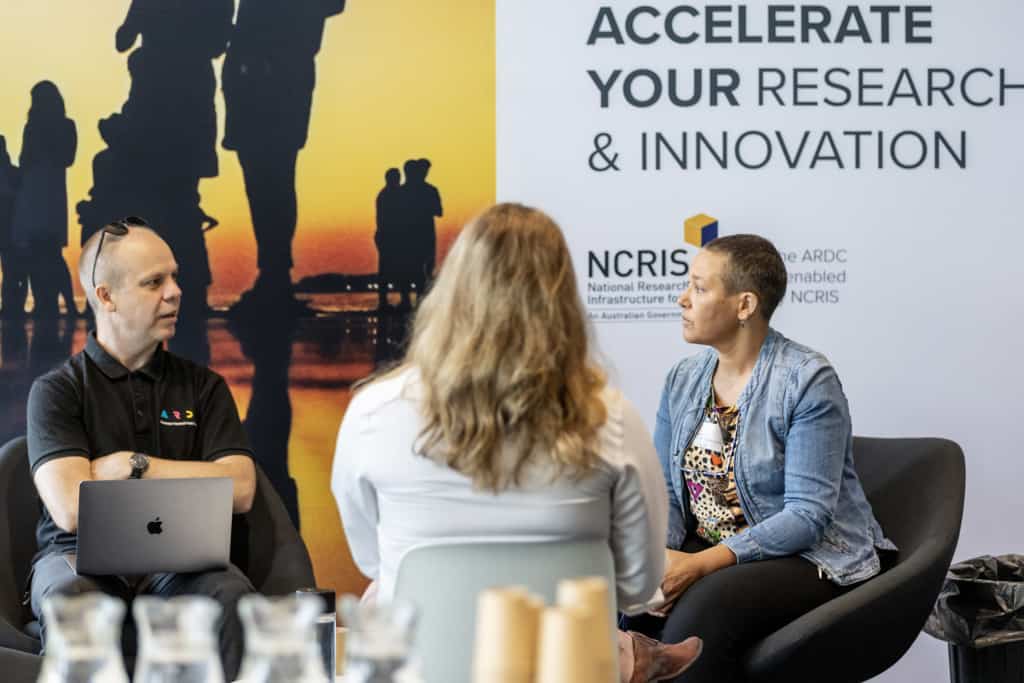
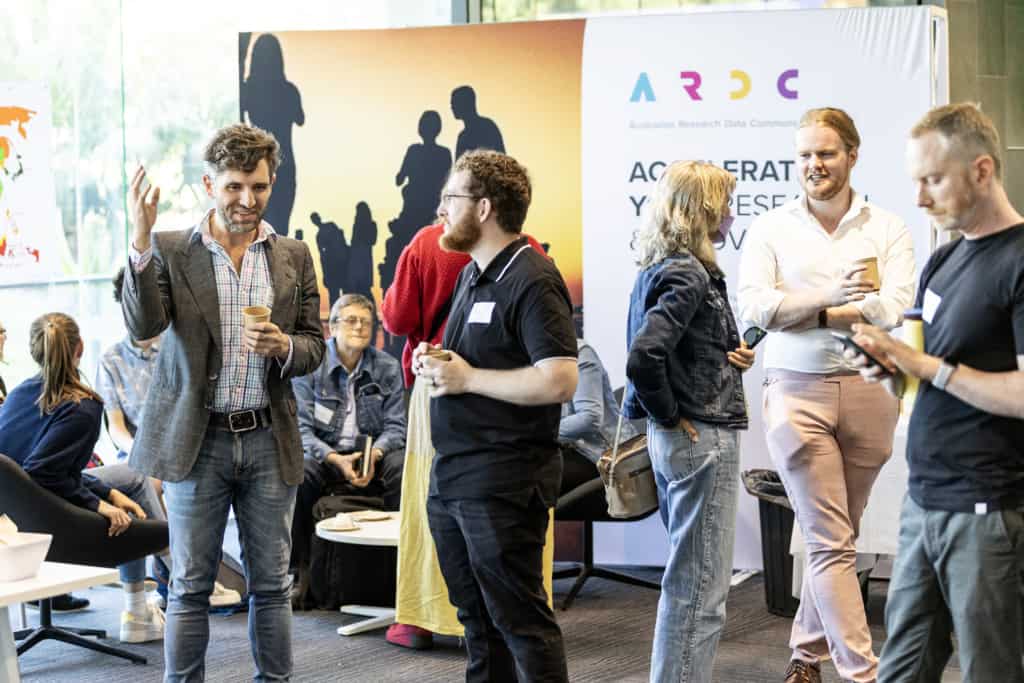
The ARDC is enabled through the National Collaborative Research Infrastructure Strategy (NCRIS) to support national digital research infrastructure for Australian researchers.

